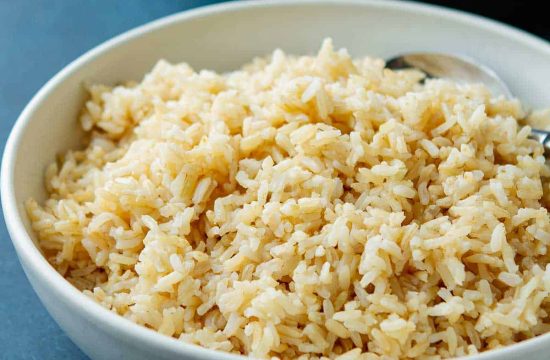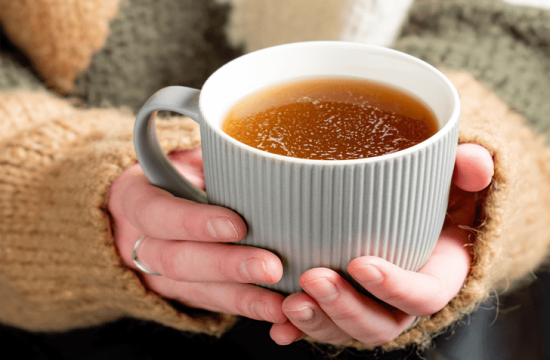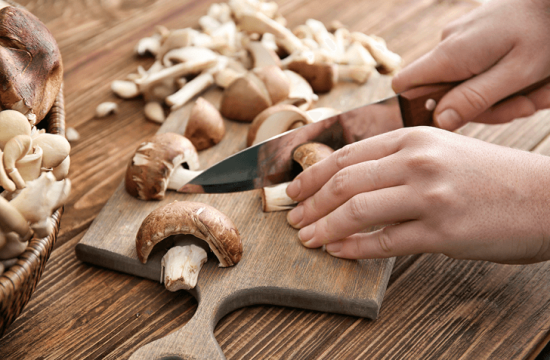Article by Dr Raghuram Y.S. MD (Ay) & Dr Manasa, B.A.M.S
Maha Shwasa is a type of Shwasa Roga i.e. breathing disorder wherein there is difficulty in breathing. Shwasa is a condition which includes different patterns or diseased conditions marked with difficulty in breathing or shortness of breath. In short shwasa means dyspnoea. It is of five types. Maha Shwasa is one among them.
Meaning of Maha Shwasa
The word Maha Shwasa is made up of 2 terms, maha and shwasa.
Maha – Maha means ‘great’ or ‘big’. Since this term is used in relation to a disease marked with breathlessness or shortness of breath / dyspnea, it probably explains the prognosis of this condition. Here maha should be understood as a ‘condition with greater difficulty in breathing (in comparison to the other 4 conditions of dyspnea)’.
Shwasa – Shwasa means ‘shwasa krichrata’ i.e. difficulty in breathing.
So putting these two terms together we can understand ‘maha shwasa’ as a condition marked by difficulty in breathing which is ,the worst and most critical, amongst the five types of diseases presenting with dyspnea and also having bad prognosis i.e. Maha Shwasa is incurable.
Maha Shwasa
उद्धूयमानवातो यः शब्दवद् दुःखितो नरः।
उअच्चैः श्वसिति संरोद्धो मत्तर्षभ इवानिशम्॥
प्रनष्टज्ञानविज्ञानस्तथा विभ्रान्तलोचनः।
विवृताक्ष्याननो बद्धमूत्रवर्चा विशीर्णवाक्॥
दीनः प्रश्वसितं चास्य दूराद्विज्ञायते भृशम्।
माहाश्वासोपसृष्टस्तु क्षिप्रमेव विपध्यते॥च.चि.२१॥
निःसंज्ञः पार्श्वशूलार्तः शुष्ककण्ठोऽतिघोषवान्।
संरब्धनेत्रस्त्वायम्य यः श्वस्न्यात् स महान् स्मृतः॥सु.उ.तं.५१॥
Characteristic features of Maha Shwasa
Maha Shwasa is marked by strenuous and painful inspiration (breathing in). During inspiration, loud noises or sounds which are abnormal are audible.
Reason – In this condition the aggravated vayu moves haphazardly – in the upward direction – blocking the channels in the body. Due to this, the person breathes-in with difficulty throughout the day and night.
Causative Factors / Etiological Factors of Maha Shwasa
- Excessive consumption of vata aggravating foods
- Excessive exposure to vata aggravating etiological factors
Though all kinds of shwasa are caused by kapha and vata, pathogenesis of Maha Shwasa indicates predominant involvement of aggravated vata.
Pathogenesis and presentation of Maha Shwasa
In this person the vata gets severely aggravated. This aggravated vata moves in the upward direction. In other words the aggravated vata is forcibly pushed in the upward direction. This person breathes deeply with difficulty producing the sounds similar to those produced by an intoxicated bull throughout the day and night.
Consumption of vata aggravating foods and getting exposed to vata aggravating factors
↓
Severe aggravation of vata
↓
Aggravated vata (is pushed) moves haphazardly in the upward direction
↓
Causes difficulty in breathing
↓
Difficulty in breathing is associated with sounds resembling those produced by an intoxicated bull
↓
Symptoms like destruction of intellect and differentiation, deceptive visual perception / haphazard movement of eyeballs etc (mentioned below) are manifested
↓
This condition is called as ‘Maha Shwasa’
Symptoms of Maha Shwasa
| Sl No | Symptom | Meaning |
| 1 | Shabdavat Dukhita Shwasa | Breathing difficulty is associated with abnormal sounds. |
| 2 | Uchchai Shwasati | Deep and difficult breathing / inspiration |
| 3 | Matta rishabha iva | The breathing pattern is compared to the hissing of an intoxicated bull This means to tell that the person breathes the air with severe discomfort and pain. |
| 4 | Anisham | Difficulty in breathing and other symptoms are present persistently / continuously throughout the day and night |
| 5 | Pranashta gnana vignana | Since the vayu gets blocked, the body is depleted of aeration. The person loses gnana (knowledge) and vignana (skill of differentiation). He cannot understand or analyze / differentiate between anything. |
| 6 | Vibhranta lochana | Haphazard and abnormal movement of eyeballs / involuntary movement of eyeballs / improper perception or deceptive perception of vision |
| 7 | Vikruta akshi | Stiff and fixed eyes or gaze, abnormalities / deviations in eye |
| 8 | Vikruta anana | Stiff and fixed face, abnormalities / deviations in face |
| 9 | Badda mutra | Obstruction of urination |
| 10 | Badda varcha | Obstruction of feces / constipation |
| 11 | Visheerna vaak | Inability to speak / Speaks feebly in an indistinct way the words of which cannot be properly understood |
| 12 | Deenah (Klanta Manah) | Mind fatigue / Mind block / Brain fog / Weakness of mind |
| 13 | Doorat vignayate | The breathing sounds are heard to a long distance |
| 14 | Kshipra marana | Death occurs in quick time |
Other symptoms of ‘Maha Shwasa’ explained by Master Sushruta
Shvasa – difficulty in breathing is the main symptom of Maha Shwasa. It is associated with the below mentioned symptoms –
- Nisanjnah – loss of consciousness
- Parshva shula – pain in the flanks / sides of chest (and abdomen)
- Shushka kantha – dryness of the throat
- Ati ghoshavan – loud breathing sounds heard from the chest
- Samrabdha netra – redness of the eyes
- Ayamya netra – stiffness / fixed eyeballs
Treatment of Maha Shvasa
Maha Shvasa is considered to be an incurable condition. We cannot ignore the patient though. The treatment approach shall be on the general lines of ‘shwasa chikitsa’ as per classical explanation. The patient shall be managed with medicines, lifestyle changes, therapies and dietetic protocols enabling the patient to breathe as long as the prana energy or life force is intact. Since the prognosis will be bad, the patient’s attendants need to be intimated before-hand and treatment initiated after having the consent.
Modern Correlation
All complicated breathing conditions explained in the modern texts, which are beyond the scope of treatment and all conditions bearing the symptoms of Maha Shvasa and manifesting as a complication of many other chronic and long standing ailments shall be included under Maha Shvasa.
A pattern of pathological breathing and condition named ‘Biot’s Breathing’ has been put into close comparison with Maha Shvasa by many experts.
Related Reading – ‘Biot’s Breathing’
This may not be the only comparison with Maha Shwasa though. In this condition, the symptoms reflect severe contamination of pranavaha srotas – which includes the heart and lungs and the entire circulatory apparatus. Heart is also the root of rasavaha srotas. So, the affliction of heart would also deplete the body tissues of nutrition and oxygenation. Heart, also being a part and parcel of (root) manovaha srotas, maha shwas will be a severe stressful condition and would also defeat the person mentally.
Plenty of counseling, care, love, affection should be a part of the treatment, along with divine therapies. This condition shall be managed as a clinical emergency since the breathing will be very difficult and the body cells will be suffering from severe depletion of oxygen.















